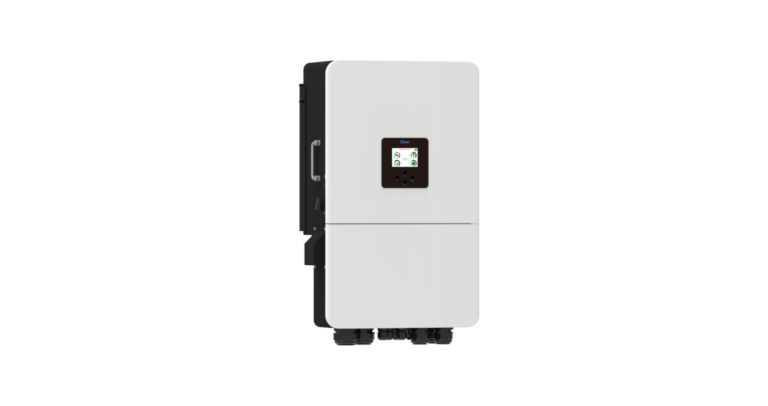Chinese manufacturer Deye says its new residential battery and integrated hybrid inverter system has a rated output power of 14 kW to 20 kW.
Chinese inverter manufacturer Deye has developed a new series of low-voltage, three-phase energy storage systems (ESS) with integrated hybrid inverters.
“The inverter’s 40V to 60V battery configuration provides a cost-effective and safe energy storage solution,” a company spokesperson said. pv magazine. “Its expandable nature eliminates the need for a battery management system (BMS), making it perfect for a variety of applications from residential to commercial installations.”
The series includes five models, with a nominal power ranging from 14 kW to 20 kW. The system features lead-acid or lithium-ion batteries, which support charge and discharge currents from 260 A to 350 A, depending on the model.
The company said the system also supports energy storage from diesel generators. It weighs 38 kg and measures 466 mm x 750 mm x 266 mm.
“The inverter supports the latest solar technology and has a PV input current of 20A+20A, making it suitable for the new generation of high-current PV modules,” the company said. “It also supports maximum PV input power up to 30 kW, meeting the installation requirements of larger PV arrays.”
The inverter offers two MPPT (Maximum Power Point Tracking) channels, with an MPPT voltage ranging from 160 V to 650 V. The efficiency of the device is 97.6% and the maximum input voltage for all devices is 800 V. The European efficiency rating is 97% and the MPPT efficiency is 99%. The new product also features natural convection cooling And IP65 rated protection.
Additionally, the inverter features a SiC MOSFET semiconductor component, which the company says “provides unparalleled performance.” “The sleek, modern design is achieved by eliminating screws on the front of the panel, while the wiring area now features a flip-up cover for easier installation, operation and maintenance. The touchscreen, now made of plexiglass, offers improved durability and a wider range of uses.”
This content is copyrighted and may not be reused. If you would like to collaborate with us and reuse some of our content, please contact: editors@pv-magazine.com.


